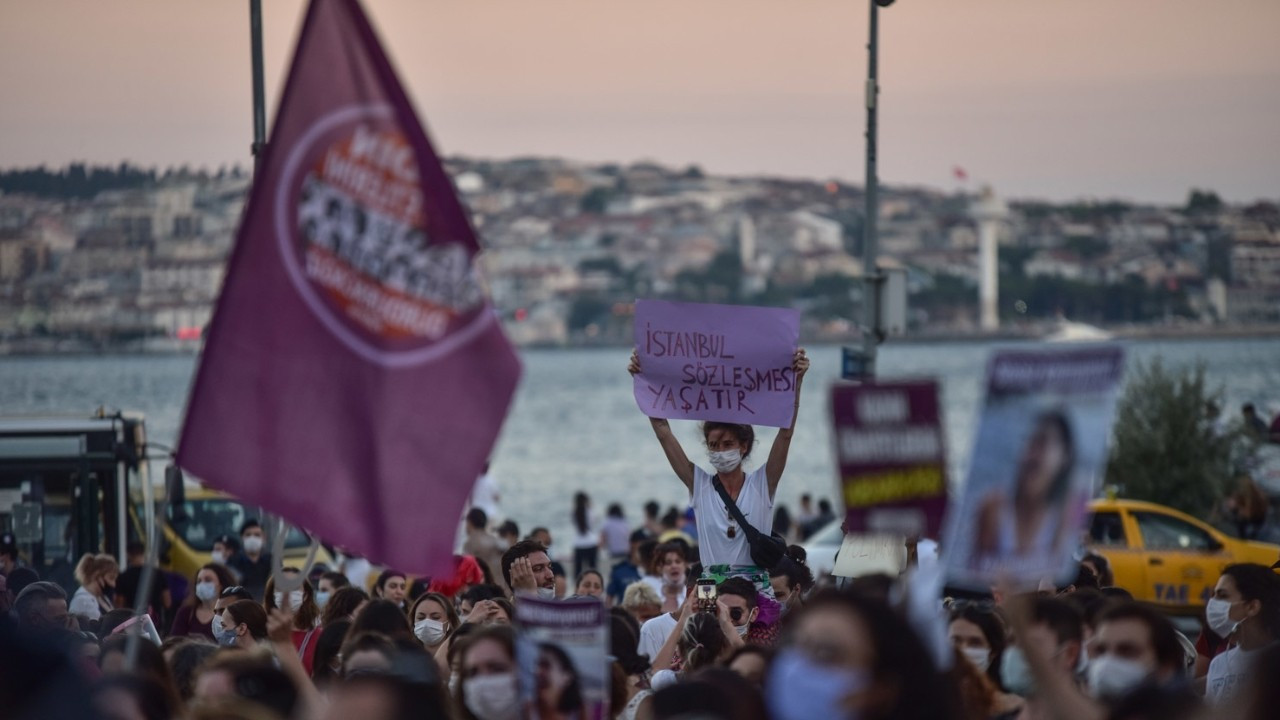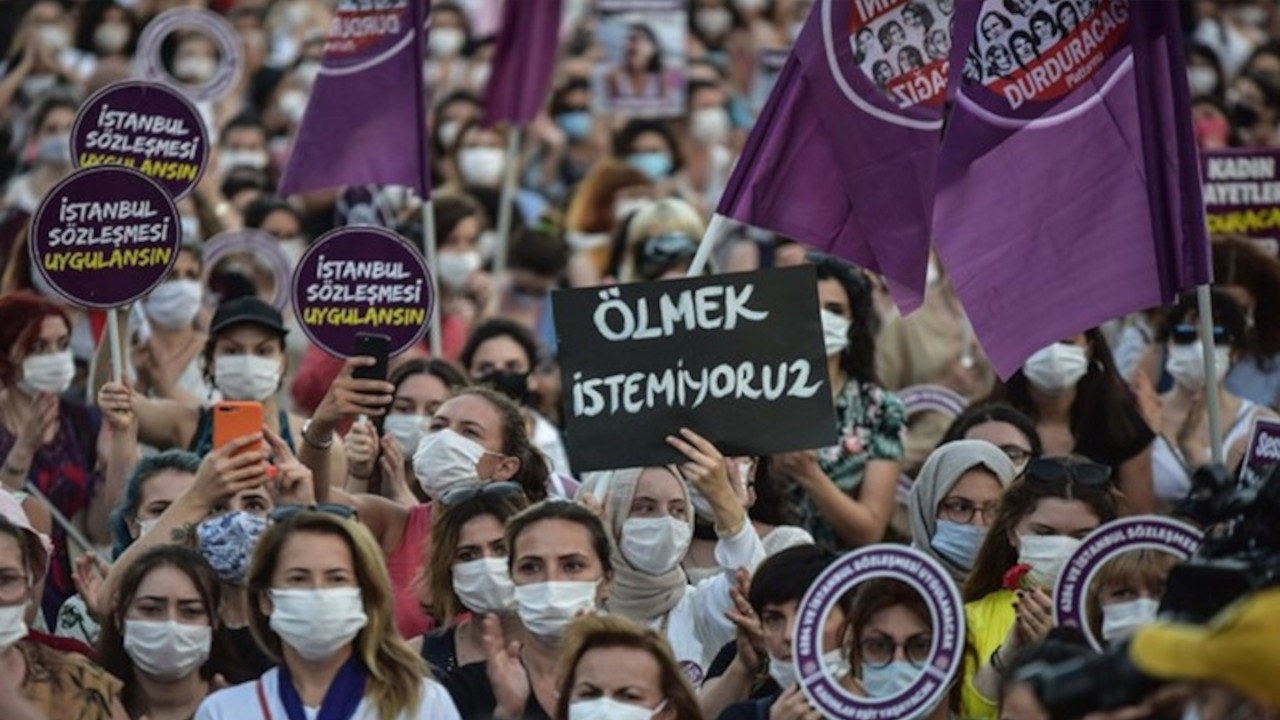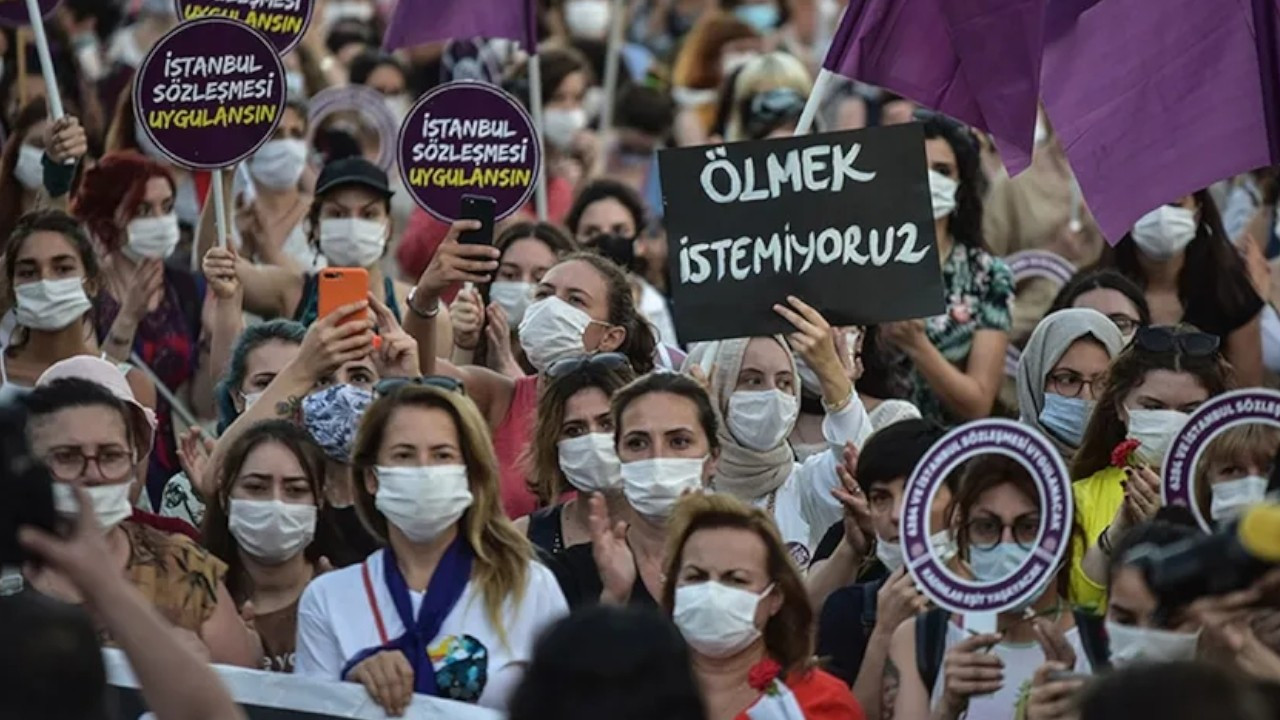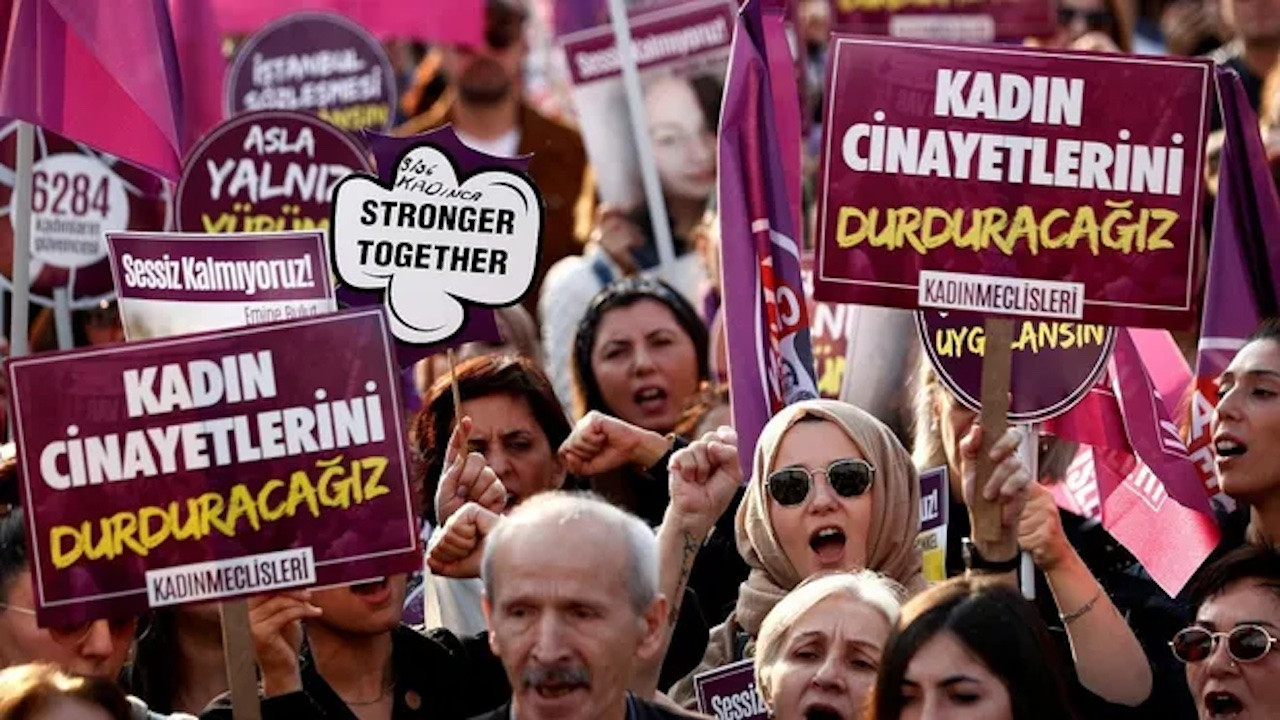Turkey's top administrative court rejects appeal against exit from Istanbul Convention
Turkey's highest administrative court Council of State has rejected the appeal demanding the reversal of a presidential decree that pulled the country out of the Istanbul Convention.
Duvar English
Turkey's Council of State, the highest administrative court in the country, on July 19 rejected the appeal demanding the annulment of a presidential decree that pulled the country out of the Council of Europe’s Convention on Preventing and Combating Violence against Women and Domestic Violence, also known as the Istanbul Convention.
The appeal was rejected in a 3-2 vote, despite the prosecutor Aytaç Kurt's opinion regarding the relevant decree "unlawful."
"It has been concluded that there is no illegality in the presidential decree,” the top court's decision said.
In their petition, the plaintiffs said that the convention was approved by the consent of all parties in parliament in 2011 and that the Constitution alone does not give the President the power to annul it.
The decision stirred huge reaction from women's organizations and opposition figures who said that they all will annul the decree when they assume power.
"This decision means that there is no legal system in Turkey. Judges of the Council of State make decisions outside of their own free will. We will continue the fight as long as we can breathe," the Turkish Federation of Women’s Associations (TKDF) chairwoman Canan Güllü stated.
"The reason of this decision was written as if it is the defense of the presidency. Our social struggle cannot be hindered by these decisions. We will continue to fight," We Will Stop Femicides Platform General Secretary Fidan Ataselim said with regards to the issue.
"I have a promise for this nation. When we come to power, and we will, we will put the Istanbul Convention into effect again in the first week, even within 24 hours," the main opposition Republican People’s Party (CHP) leader Kemal Kılıçdaroğlu said, criticizing the decision.
İYİ (Good) Party leader Meral Akşener said that the judges' decision will pave the way for more violence against women. "But, a short period of time is left. We will come and the Istanbul Convention will let us live again!" she tweeted.
Bugün, kirli bir zihniyeti memnun etmek için verilen bu siyasi karardan sonra;
— Meral Akşener (@meral_aksener) July 19, 2022
Kadınlara yönelik her türlü şiddette,
cübbelerini ilikleyip o imzayı atan parmakların izi olacak.
Ama #AzKaldı.
Biz geleceğiz ve İstanbul Sözleşmesi yeniden yaşatacak! https://t.co/6Bbx2c03iI
"The Council of State's Istanbul Convention decision means approving violence against women," a statement from the Peoples' Democratic Party's (HDP) said.
"As HDP, we do not recognize or accept the unlawful decision of the Council of State. We will not leave the Istanbul Convention at the mercy of one man," the statement read.
Danıştay’ın İstanbul Sözleşmesi kararı kadına yönelik şiddete onay vermektir
— HDP (@HDPgenelmerkezi) July 19, 2022
Merkez Yürütme Kurulumuzun açıklaması:https://t.co/O8DrrZykym
"The decision of the Council of State regarding the Istanbul Convention is unlawful. We will continue to protect the Istanbul Convention. When we come to power, the first thing to do is to re-enact the agreement. This lawlessness will not continue. It's our promise to nation," Democracy and Progress Party (DEVA) leader Ali Babacan tweeted regarding the decision.
Danıştay’ın İstanbul Sözleşmesi ile ilgili kararı hukuka aykırıdır.
— Ali Babacan (@alibabacan) July 19, 2022
İstanbul Sözleşmesi’ne sahip çıkmaya devam edeceğiz ve iktidara geldiğimizde ilk iş, sözleşmeyi yeniden yürürlüğe koyacağız.
Bu hukuksuzluk devam etmeyecek. Milletimize sözümüz olsun.
"The Council of State ignored the rule of law with the decision of the Istanbul Convention and bowed to the political will. We will solve all lawlessness. We will re-enact the Istanbul Convention," Future Party leader Ahmet Davutoğlu said.
Danıştay İstanbul Sözleşmesi kararıyla hukukun üstünlüğünü yok sayarak siyasi iradeye boyun eğmiştir.
— Ahmet Davutoğlu (@Ahmet_Davutoglu) July 19, 2022
Biz tüm hukuksuzlukları çözeceğiz. #İstanbulSözleşmesini yeniden yürürlüğe koyacağız.
Prominent human rights lawyer Kerem Altıparmak told Gazete Duvar: "The President can abolish hundreds of international agreements and laws in one night with a single sentence decision."
"The President can even annul the Lausanne Treaty according to this decision," Altıparmak said.
Meanwhile, ruling Justice and Development Party (AKP) Group Deputy Chair Yılmaz Tunç praised the decision and stated that "it is an appropriate decision and ended the discussions that lacked legal basis."
"According to our Constitution and legislation, the authority to ratify/annul the international treaty rests with the President," Tunç added.
Danıştay 10.Dairesi,
— Yılmaz TUNÇ (@yilmaztunc) July 19, 2022
İstanbul Sözleşmesi'nin feshine dair 20.03.2021 tarihli Cumhurbaşkanı Kararının iptal istemini reddetti.
Karar, hukuka uygun, yerinde, doğru bir karardır.
Anayasa ve mevzuatımıza göre Milletlerarası antlaşmayı onaylama/fesih yetkisi Cumhurbaşkanı’na aittir
President Recep Tayyip Erdoğan signed the presidential decree on March 20, 2021, quitting the landmark treaty aimed at protecting women from violence. On July 1, 2021, the country formally left the convention, triggering massive protests and anger from women’s rights groups, who believed the agreement was essential.
Turkey, the first country to ratify the treaty in 2011, suffers from high rates of femicide.

 Turkey's exit from Istanbul Convention 'unlawful,' says Council of State prosecutorHuman Rights
Turkey's exit from Istanbul Convention 'unlawful,' says Council of State prosecutorHuman Rights Council of State prosecutor says only parliament can quit Istanbul ConventionHuman Rights
Council of State prosecutor says only parliament can quit Istanbul ConventionHuman Rights 60 percent of Turks witnessing violence against women in immediate environmentsWomen
60 percent of Turks witnessing violence against women in immediate environmentsWomen Lawsuit filed against leading feminist organization, seeking its closureWomen
Lawsuit filed against leading feminist organization, seeking its closureWomen